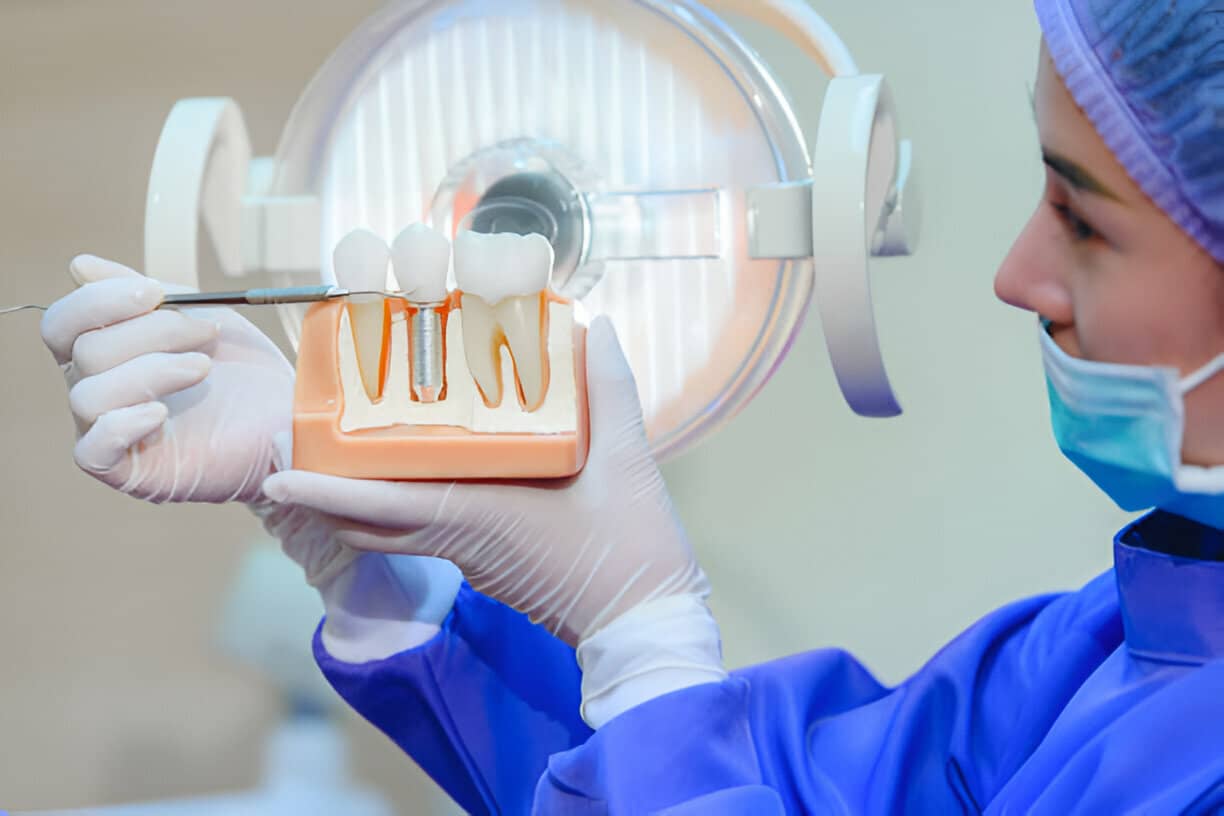Dental implants are a popular solution for missing teeth, offering a natural-looking and permanent replacement. However, one common question that arises among patients is whether plaque can grow on implants and, if so, how to prevent it. We will share insights backed by expert opinions and research studies about this in the blog.
From understanding the reasons for dental implants to exploring the most common causes of implant failure, we’ll cover it all. Additionally, we’ll discuss the significance of maintaining proper oral hygiene, including regular dental check-ups and professional cleanings, to prevent plaque buildup.
Reasons for Dental Implants
Dental implants are chosen for various reasons, including restoring a confident smile, improving chewing and speech, and preventing bone loss. They are a long-term solution that can last a lifetime with proper care. Implants also help maintain facial structure and prevent adjacent teeth from shifting.
Most Common Causes of Implant Failure
One of the most common reasons for dental implant failure is peri-implantitis, which is an inflammatory condition affecting the tissues surrounding the implant. This condition is often caused by poor oral hygiene, leading to plaque buildup and bacterial infection. Other factors contributing to implant failure include smoking, diabetes, and a weakened immune system.
Plaque Growth on Dental Implants
Dental implants have become a popular choice for replacing missing teeth due to their durability and natural appearance. However, just like natural teeth, dental implants are susceptible to plaque buildup, which can lead to various oral health issues if left unchecked.
Plaque is a sticky, colourless layer of bacteria that constantly forms on teeth and dental implants. When plaque is not properly removed through daily oral hygiene practices such as brushing and flossing, it can harden into a substance called tartar or calculus. Tartar is more difficult to remove and can only be removed by a dental professional using special tools.
Plaque and tartar buildup on dental implants can lead to a condition called peri-implantitis, which is characterized by inflammation and infection of the tissues surrounding the implant. If left untreated, peri-implantitis can cause bone loss around the implant, leading to implant failure.
To prevent plaque buildup on dental implants, it is essential to maintain good oral hygiene practices. This includes brushing at least twice a day with a soft-bristled toothbrush and fluoride toothpaste, flossing daily, and using an antimicrobial mouth rinse. Regular dental check-ups and professional cleanings are also crucial for removing any plaque and tartar that may have accumulated on the implants.
How to Remove Plaque from Teeth
Regular brushing and flossing are essential to remove plaque from teeth and implants. Using an antimicrobial mouthwash can also help reduce plaque and prevent bacterial growth.
However, it is important to note that professional dental cleanings are necessary to remove plaque and tartar that cannot be eliminated through regular oral hygiene practices.
Plaque can indeed grow on dental implants, leading to serious oral health issues if left untreated. Maintaining proper oral hygiene, including brushing, flossing, and regular dental check-ups, is crucial to prevent plaque buildup and ensure the longevity of your implants.
Consulting with a qualified dentist near you can provide personalized advice and treatment options tailored to your specific needs. Remember, a healthy smile starts with good oral hygiene practices!
Smile Without Worrying about the Plaque of Implants!
Searching for a trusted and experienced dentist in Woodbridge? Vellore Woods Dentistry is your go-to choice! Our skilled and compassionate team provides comprehensive dental services, from routine check-ups to advanced treatments, ensuring you achieve and maintain optimal oral health.
With a dedication to patient comfort and satisfaction, we deliver exceptional care in a welcoming environment. Schedule your appointment today!

